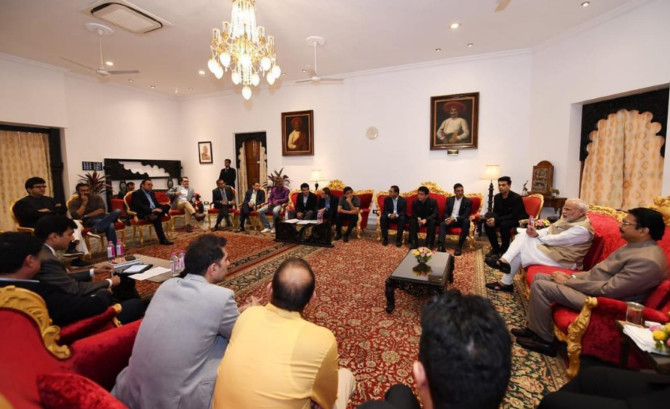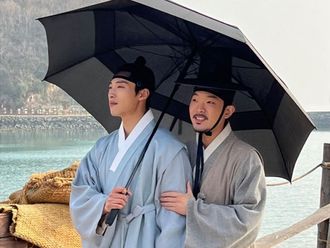_resources1_16a08546213_medium.jpg)
In a year that has championed inclusivity and gender equality, an all-male delegation representing the Indian film industry meeting Prime Minister Narendra Modi has drawn considerable flak from women filmmakers and social media.
“Would be great to have female representation in these delegations. It is 2018,” tweeted ‘Lipstick Under My Burkha’ director Alankrita Shrivastava, unleashing a stream of messages pointing out the gender imbalance in the meeting.
The delegation, which included Karan Johar, Akshay Kumar, Bhushan Kumar, Siddharth Roy Kapur and Prasoon Joshi, met Modi in Mumbai on Tuesday. They pitched for lower and uniform rates of Goods and Services Tax for the entertainment industry in India, apart from calling for the development of Mumbai as the global entertainment capital through various initiatives and proactive approaches.
But a big question it raised was, “Where are all the women?”, in what seemed like a reminder of a similar ‘Modi and film fraternity delegation’ meet held in October in New Delhi.
“I believe women are equal stakeholders in the film industry and overall in the Indian economy,” Shrivastava said, “Policies that concern the film industry should be discussed and shaped by collectives that have equal representation of women. We cannot just assume that only men somehow know everything and will decide everything.”
She said that this held true for all industries and all kinds of panels and delegations.

“It is 2018 and time is up on having all-male groups leading the way. If we truly want a more equal world, we have to make proactive efforts towards creating it. And that will make us a genuinely progressive country,” she added.
Film producer Guneet Monga, whose co-production ‘Period. End of Sentence’, a short documentary, has advanced in the Oscar race, appreciated the government’s interest in hearing out issues of the Indian film industry.
“It is great that the government and producers from film industry are meeting and I hope it helps the industry. It would have been wonderful for woman producers to be part of such initiatives too,” Monga said.
Acclaimed actress Tannishtha Chatterjee, who is turning director, said it would have been great to have a “more inclusive representation with women and film fraternity” from all other regions.
“Indian cinema is not only about Hindi films, considering the fact that this year’s Oscar entry from India was not a Hindi film and directed by a woman,” Chatterjee said, referring to the Assamese film ‘Village Rockstars’ from director Rima Das. She pointed out at the lack of representation from the regional film industries at Modi’s meeting as well.
Twitter remained abuzz with independent writers and columnists calling out the meeting for being “half-baked male-dominated”.
Nevertheless, those who attended the meeting, seemed satisfied and grateful to the prime minister.
“Heartfelt thank you to the honourable Prime Minister Narendra Modiji for taking out time to hear us at length, discuss issues pertaining to our industry and assuring positive consideration of suggestions,” Kumar tweeted.
“It was enlightening to hear the honourable Prime Minsiter Narendra Modi shared his views on our industry’s soft power status and the strength of our cinema... He gave our media and entertainment representatives a patient and solid hearing,” Johar, owner of Dharma Productions, wrote.
“It was my honour to be a part of an industry discussion with honourable Prime Minister Narendra Modiji. The film industry’s contribution to the entertainment sector will see exponential growth in coming years and will put India on the global map. Look forward to your continuous support,” T-Series head Bhushan Kumar said.
On his part, Modi tweeted that the meeting involved “an extensive and fruitful” interaction.
Actress Gul Panag voiced what many others felt: “Hope the delegation includes some women next time.”
Not to forget, at the 49th International Film Festival of India this year, the Indian Panorama feature film jury comprised 12 people, but not a single woman. And the government-organised film jamboree also kept #MeToo discussions at bay.











